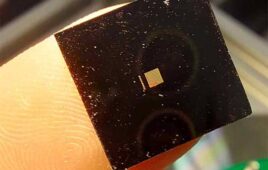
[Image from unsplash.com]
The small 6,000-resident Japanese town of Kaneyama has high rates of stomach cancer and Mayor Hiroshi Suzuki has taken to a sniffer dog research program to hopefully improve the accuracy of cancer screenings.
Suzuki and medical school professor Masao Miyashita conducted a research program in the town that involved dogs sniffing out cancer from test samples.
Miyashita receives frozen urine samples from the town at the Nippon Medical School Chiba Hokusoh Hospital in Chiba Prefecture where dogs are trained to sniff out the disease in urine.
“In our research so far, cancer detection dogs have been able to find [signs of] cancer with an accuracy of nearly 100%,” Miyashita told Japan Today.
It is currently unknown what substances are emitted by cancer cells that are able to be detected by dogs.
The research program currently employs 5 dogs that are trained to work as cancer detection dogs in the country. The program costs about 5 million yen ($45,000) to train a single dog.
There is a program in the U.K. called Medical Detection Dogs that uses the same concept. The dogs at this organization are trained to identify cancers and the possible development of other non-invasive cancer diagnoses. The research that Medical Detection Dogs is doing is NHS approved and is exploring the possibilities of dogs detecting breast cancer and urological cancers like prostate cancer with the potential of expanding to lung and colorectal cancers. The organization also hope to be able to train dogs to detect malaria and Parkinson’s disease.
[Want to stay more on top of MDO content? Subscribe to our weekly e-newsletter.]





Of Course!!! Dogs have long been known to be “Man’s best friend”. It was just a matter of learning to ask them to do the right favor.
Haha. Thanks, William.